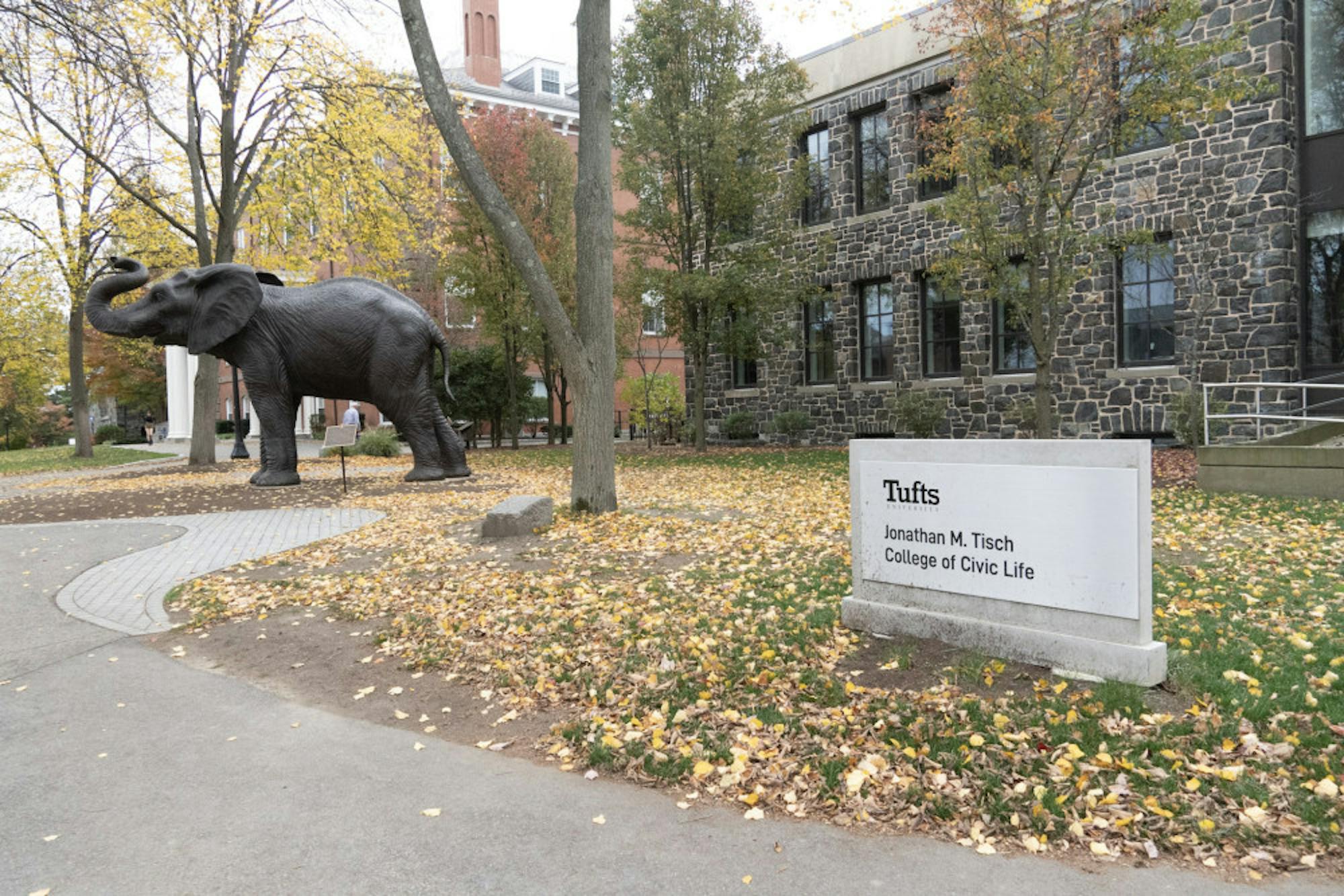The Jonathan M. Tisch College of Civic Life closed its 2022 Solomont Speaker Series on Nov. 9 with a lecture by Sherrilyn Ifill, a preeminent civil rights lawyer. Ifill gave an overview of the state of American democracy and discussed the urgent need to fight for it.
Ifill is the former president and director-counsel of the NAACP Legal Defense Fund, where she litigated different civil rights causes, including voter suppression and racial discrimination. She taught at the University of Maryland School of Law for 20 years and instituted a series of law clinics that served not only students practicing law, but also facilitated the reentry of ex-offenders. In 2021, she was appointed to President Biden’s commission on the Supreme Court.
Ifill began by sharing her impressions of the work done by Tisch College, noting that it intersects well with her professional work.
“It’s very hard for me to turn down an opportunity to talk about a subject that matters so much to me and that really is my life’s work,” Ifill said. “That's basically the name of my talk — ‘the fight for democracy.’ So I was thrilled to hear that you all are grappling with and engaging with the issues that I think not only confront us but that we are obligated and compelled to wrestle with at this moment in this country.”
Describing America as a “teenage democracy,” Ifill noted the history of the nation and the qualities that kept it from being truly democratic until recently. In particular, Ifill discussed the fact that many African Americans and other racial minorities were prevented from voting until the passing of the Voting Rights Act in 1965, leaving a significant part of the American population out of its representative government.
“If you have teenagers, or if you were a teenager, you know what it's like,” Ifill said. “I think we have growing pains … I think we've just started to begin this process of trying to be who we claimed we were, but who we really were not prior to 1965.”
Ifill went on to discuss a few contemporary social predicaments that reflect the inadequacy of the nation’s democracy.
“You know your democracy is in trouble because thousands of people are storming your capital and threatening to hang the vice president,” Ifill said, referencing the Jan. 6, 2021 attack on the Capitol building. “Is it in trouble if the leader of your country will not commit to a peaceful transfer of power?”
She also criticized certain present-day attempts to mend democracy, noting that proponents of a democratic nation should speak with those with whom the current political precedent is failing.
“You have to engage with people who are interacting with the democracy in such a way that it reveals the weaknesses in the foundation,” she said. “So, if I want to know whether democracy is healthy, I don't talk to the most successful person. I don't talk to the pundit on television for whom America has worked out.”
Ifill noted that despite working in favor of democracy, activists are often vilified and taken as people with personal missions.
“If we were seen as democracy workers, rather than as [people of] special interests working on their own agenda, the information that we have, from the lens of the communities of people that we represent, would help people understand the ways in which our democracy is deeply flawed,” she said.
Ifill’s book, “On the Courthouse Lawn: Confronting the Legacy of Lynching in the 21st Century,” proposes a foundation for conversations on reconciliation and healing from racial trauma. Her upcoming book “Is This America?” is inspired by civil rights activist Fannie Lou Hamer, a former sharecropper based in Mississippi, who was a key figure in the voting rights movement.
“She was permitted to speak [at the 1964 Democratic Convention],” Ifill said. “And she spoke incredibly powerfully … the rhetorical flourish that she used was ‘Is this America? I question America.’”
Dayna Cunningham, dean of Tisch College, then sat down with Ifill to ask a few more questions about the state of modern democracy. Cunningham posed a question regarding Ifill’s identity as a Black woman and how it has played a role in her work.
“This sensibility of both recognizing that we are a teenage democracy and being excited about the possibilities is another piece of Black sensibility which is Black joy and Black hope,” she asked. “How has that informed your pathway professionally and in your work?”
In response to Dean Cunningham’s question, Ifill discussed an essay she had recently written regarding the impact previous Black leaders have had on her personal experience.
“They were working on this thing day and night, ruining their health, traveling and risking their lives, often,” Ifill said. “These were Black people who risked it all for something they couldn't even see and that they had no guarantee would work. And that's so powerful to me.”
Ifill then heard questions from the audience.
One audience member asked Ifill, “[Regarding] the narrative of just sitting around and talking about what’s happening — how do we change that to start putting actionable plans in place?”
In response, Ifill explained the importance of voting and educated voting in a democracy, noting as well the need for Americans to engage directly with both their elected officials and the community around them.
Concluding the discussion, Ifill emphasized how pressing the fight for democracy has become, and the need for all people to participate.
“I hope that we feel this urgency and I hope that we have the courage of the people who came before us who made our lives possible,” she said.






